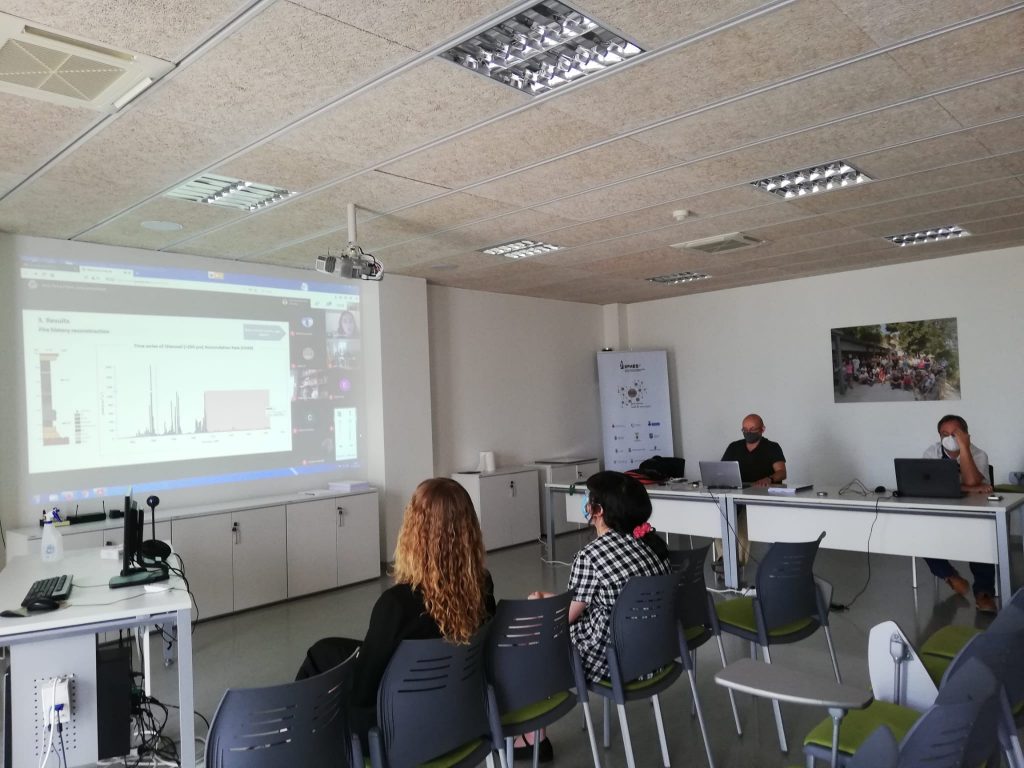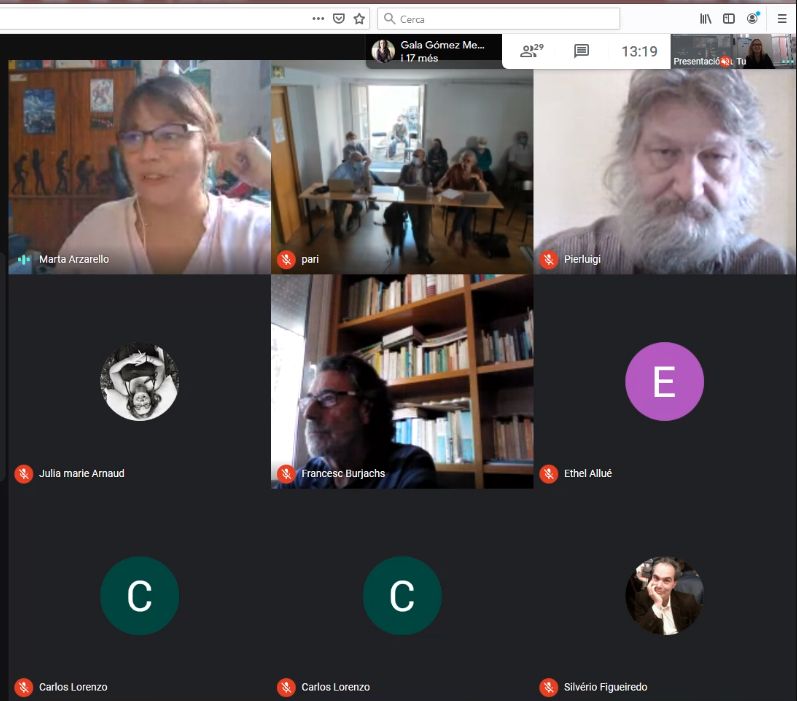25/09/2020
Presentation of 12 master theses of the Erasmus Mundus in Quaternary Archaeology and Human Evolution
Since 2006, fifteen promotions of master students have been graduated and more than 200 research works have been completed

Since 2006, fifteen promotions of master students have been graduated and more than 200 research works have been completed
Twelve students have presented their final master research work of the master Erasmus Mundus in Quaternary Archaeology and Human Evolution, 5 of these students started their studies at Rovira i Virgili University (URV), in Tarragona (Spain). Last 21th September Students from Spain, Italy and France defended their works in a joining season using virtual platform. Some of the URV students defended their works from IPHES (Institut Català de Paleoecologia Humana i Evolució Social) videoconference room, but major part defended their work by distance. Also, the jury composed by representatives of the Erasmus Mundus consortium participated online.
The Erasmus Mundus Master in Quaternary Archaeology and Human Evolution is given in partnership with other European institutions, particularly the University of Ferrara, (Italy), the National Museum of Natural History (Paris, France) and the Tomar Polytechnic Institute (in Portugal).

Since 2006, fifteen promotions of master students have been graduated and more than 200 research works have been completed so far. Many of them are based on different projects in which the IPHES participates, in line with the center of uniting teaching with research, field work and socializing.
Indeed, the Erasmus Mundus Master in Quaternary Archaeology and Human Evolution began to teach at the URV in 2004-2005 academic year, thanks to the research carried out in the IPHES, participating in major global projects in its field. The Erasmus + program represents an important recognition of the quality and singularity to attract students and represents a key on the internationalization objectives of the URV.
